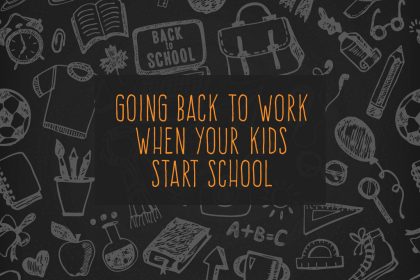Why didn’t I get the job? How to ask for interview feedback
You’ve just found out you didn’t get the job you interviewed for. But why? Read a simple strategy to help you ask for interview feedback.
It’s disappointing and demotivating to be told you were unsuccessful in an interview – especially if you feel it went well. But it’s even more frustrating to not get any feedback as you why you weren’t chosen for the job.
Knowing why you were unsuccessful can help you in two ways:
- It can reassure you – it could be that you performed well in the interview and were a great fit for the role, but there was just someone better. Or they decided at the last minute not to fill the role.
- I can help you improve – if your interview technique needs work, or there’s something you do or say that is putting employers off, you need to know so you can work on improving.
While feedback is useful, not every employer explains why you were unsuccessful. But that doesn’t have to mean you’re left guessing. Rather than wait for an employer to volunteer the information, you can ask for it. Here’s how to do it.
Be professional
You might be feeling let down and even angry following an unsuccessful interview, but whatever you do, don’t take your frustrations out on the employer!
They may have roles in the future or with different branches of the company you want to apply for. Or the candidate they do offer the role to may not work out and they could end up offering the role to you in the end.
So you don’t want to jeopardise your future chances by reacting badly now. Instead, thank them for getting back to you, and politely ask if they wouldn’t mind giving you feedback.
Be prepared
In the majority of cases these days, if you are unsuccessful you will find out via email or letter. Some HR departments will end their correspondence advising you how to get in touch for feedback, as they recognise it’s valuable in improving yourself ready for your next interview.
However if they don’t, it’s a good idea to have a pre-prepared, well written response requesting this, so you’re ready to get feedback as quickly as possible.
A simple paragraph or two thanking them for the interview opportunity and asking for any constructive feedback should be all you need. Having this prepared and ready to go will help you in the long run, especially if you’re not feeling your best after finding out you didn’t secure the role.
Don’t leave it too late
On that note, don’t wait a week to request feedback. An unsuccessful response from an interview can be really disheartening, but don’t wallow on the negative — use this to find out where you went wrong and make sure you take it on board.
It sounds terrible, but leaving it too long to seek feedback will usually mean the hiring managers will have forgotten most of your interview. And you’re more likely to get a generic response rather than anything constructive – if you get a response at all!
So reply as soon as possible, using your pre-prepared response.
Wait for a reply
When it comes to interviews, it’s in the interest of professional hiring managers to provide feedback, especially when it’s requested in the right way.
If you delivered a great interview but were pipped to the post by someone with more experience, most employers will want to keep you on their books in case any future roles come up. So providing feedback to this effect will keep you in their good books, as well as making sure they have a list of potential future employees.
If they don’t reply, it might well speak volumes about the type of company they are. Busy or not, it’s basic courtesy to reply. So if they don’t, are they someone you want to work for in the long run? Perhaps your interview rejection was in fact a lucky escape!
Be ready for the answer
When feedback does come, try to be thick skinned when reading it. Interview feedback can reveal different aspects of your experience, skills and overall appearance/interaction with the interviewers, and some of it might not be want you want to hear.
Most feedback will focus on your skills — where they felt you were a strong candidate but also where there were gaps or a lack of relevance.
But it could also look at how you presented yourself. Your body language, vocabulary, dress and appearance, and even how you shake hands all factor into the interview, so be prepared for feedback on any of this.
Always keep in mind that none of this is a personal slight against you. Nor is the employer looking for an opportunity to make you feel bad. They are just trying to be constructive (and remember that you requested this!).
Make sure that whatever the feedback is, you make a note to work on any weaknesses for next time. And keep up the good work on any strengths they identify!
Be proud of your successes
In today’s job market securing a job interview is, in itself, a fantastic achievement. So don’t be too hard on yourself if you didn’t land the position in the end. And don’t let it stop you from keeping up the hard work or applying for roles in future.
The more interviews you attend, and the more feedback you work on, the more confident you’ll be – and the better prepared you’ll be for when the right role does comes along.
Need help landing a job? You’ll find it here!
If you’re currently looking for a new role, you’ll find plenty of helpful advice in these articles:
- How to answer the 10 most difficult job interview questions
- Try this easy highlighter trick to write a CV that will get you the job you want
- Nine quick tips to prepare for a successful job interview
- How to answer the 10 most difficult job interview questions
Elaine Mead is a passionate education and careers consultant, and is particularly interested in empowering young women to be their professional best. You can follow her on Twitter and read more of her articles on medium.










